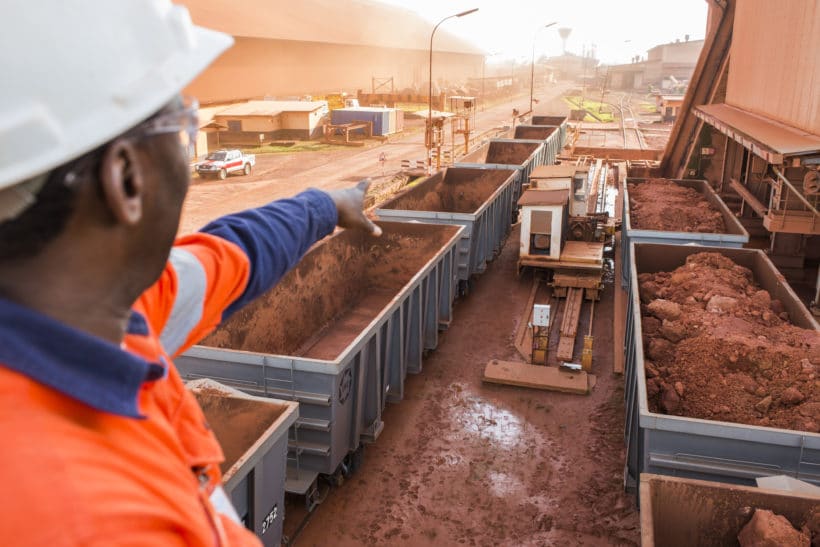
JOHANNESBURG, Sept 6 (Reuters) – Prices for aluminium ore bauxite from Guinea hit their highest in almost 18 months in top metals consumer China on Monday, as buyers fretted about supply after a coup in the West African country though no operations reported being impacted.
Guinea is the world’s second-biggest producer of the raw material, which is refined into alumina, a substance used to make aluminium metal, and the top supplier to China.
Guinean bauxite for delivery to China was last assessed by Asian Metal at $50.50 a tonne, up 1% from Friday and the highest since March 16, 2020. Prices are up around 16% so far this year.
The ouster on Sunday of Guinea’s President Alpha Conde by an army unit also extended a rally in aluminium prices to decade highs, causing shares in aluminium producers Norsk Hydro and Rusal to jump.
The unrest did not immediately impact bauxite operations, though, which are key to Guinea’s economy as its main foreign currency earner. The country produced 88 million tonnes of bauxite last year according to mines ministry statistics.
Read more: Elite Guinea army unit says it has toppled president
“It is highly unlikely that the coup will have any major short term impact on exports, which are always at the lowest part of the cycle in September with stockpiles depleted as the rainy season comes to an end,” said Guinea bauxite industry specialist Bob Adam.
“Any incoming government will want to make sure that it doesn’t jeopardise future earnings and investment,” he added.
Coup leader Mamady Doumbouya said on Monday that a curfew imposed in mining areas had been lifted.
Guinea’s top bauxite producer Société Minière de Boké (SMB) did not immediately reply to a request for comment.
A spokesperson for Aluminium Corp of China Ltd (Chalco), the world’s biggest producer of alumina, said its bauxite business in Guinea was operating normally.
Singapore’s TOP International Holding, which owns two bauxite mines in Guinea, said operations were ongoing “with minimal disruption” and the situation at mine sites in Boke and Boffa was stable.
A Compagnie des Bauxites de Guinée (CBG) spokesperson said its mines had not been impacted by the turmoil.
Rusal, which owns the Compagnie des Bauxites de Kindia (CBK) in Guinea, did not immediately respond to questions on whether its operations had been disrupted.
For a graphic on Guinea’s bauxite production, click: https://tmsnrt.rs/3l1NSxW
AngloGold Ashanti said its Siguiri gold mine in Guinea was operating normally.
“We’re monitoring the situation and are in close contact with the leadership of our mine in Guinea, which is operating normally,” the gold miner said in a statement. Siguiri produced 117,000 ounces of gold in the first six months of this year.
Read more: Toppled Conde failed to live up to pledges in Guinea
The coup casts further doubt on the future for Guinea’s many iron ore mine projects.
Rio Tinto, which is developing part of Guinea’s huge Simandou iron ore project alongside Chinalco, declined to comment on how the overthrow might impact its plans in the country.
Andrew Gadd, senior steel analyst at CRU Group, said: “Sourcing the finances for Simandou has proved very difficult and the uncertainty generated by the current developments will challenge the commitment of interested parties.”
Guy de Selliers, chairman of the Société des Mines de Fer de Guinée (SMFG) which is developing the Nimba iron ore project, said: “Irrespective of who is in charge, they will want this project to happen because it is good for the country.”
De Selliers said SMFG has political risk insurance through the World Bank’s Multilateral Investment Guarantee Agency.
(Reporting by Helen Reid; Additional Reporting by Melanie Burton in Melbourne, Polina Devitt in Moscow, Mai Nguyen in Singapore and Tom Daly; Editing by Edmund Blair, Emelia Sithole-Matarise and Jane Merriman)

